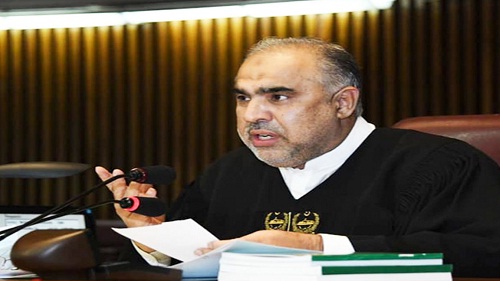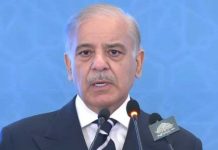ISLAMABAD, MAY 11 /DNA/ – Former Speaker National Assembly, Asad Qaiser has said that Ex FATA &PATA – for front and most affected areas due to war against terrorism in Pakistan- was promised tax exemption package for 10 years (2018-2028) to support the growth of industrialization at the time of merger.The aim of this exemption was to bring their area up to speed with the rest of the country to create employment opportunities for future generations. Further Private investments to the tune of Rs 100 Billion were done keeping in view the timeline.
He also said that premature withdrawal of exemption will render all efforts wasted.It is not factual to claim that the units falling in FATA& PATA do not pay any taxes.The exemption was granted just for Sales tax and income tax only and custom duties was about being paid by these units amounts to Rs 55 Billion annually.The FBR estimates to generate additional Rs 25 Billion from levying taxes. If this is done all at once, it will choke an industry that is already in its infancy which will create chaos and unrest.
He also expressed that the better solution would be to go about the application of sales tax in a progressive manner. For instance out of a total of 18% sales tax, 5% is applied in the first two years and 10% in the remaining two years until the year 2028. Income tax should be exempted through out this period as it is already only 2% on industrial inputs. Currently the number of industries operating in all of EX FATA PATA are approx 260 units employing thousands of local people and feeding the local markets at subsidised rates.
Needless to say, a single industrial estate in settle areas have more industrial units than all of FATA PATA combined while the exemptions and subsidies given to export oriented sectors, fertilizer sector and others amount to approx Rs 2000 Billion(stats provided by FBR).
He reiterated that the people of FATA PATA have paid the cost of terrorism many times over. While we can spend almost Rs 500 Billion on social programs to help the underprivileged but in order eradicate poverty from the grass root and shape future generations, opportunities of income generation should be extended to the areas stricken by war and terrorism.












